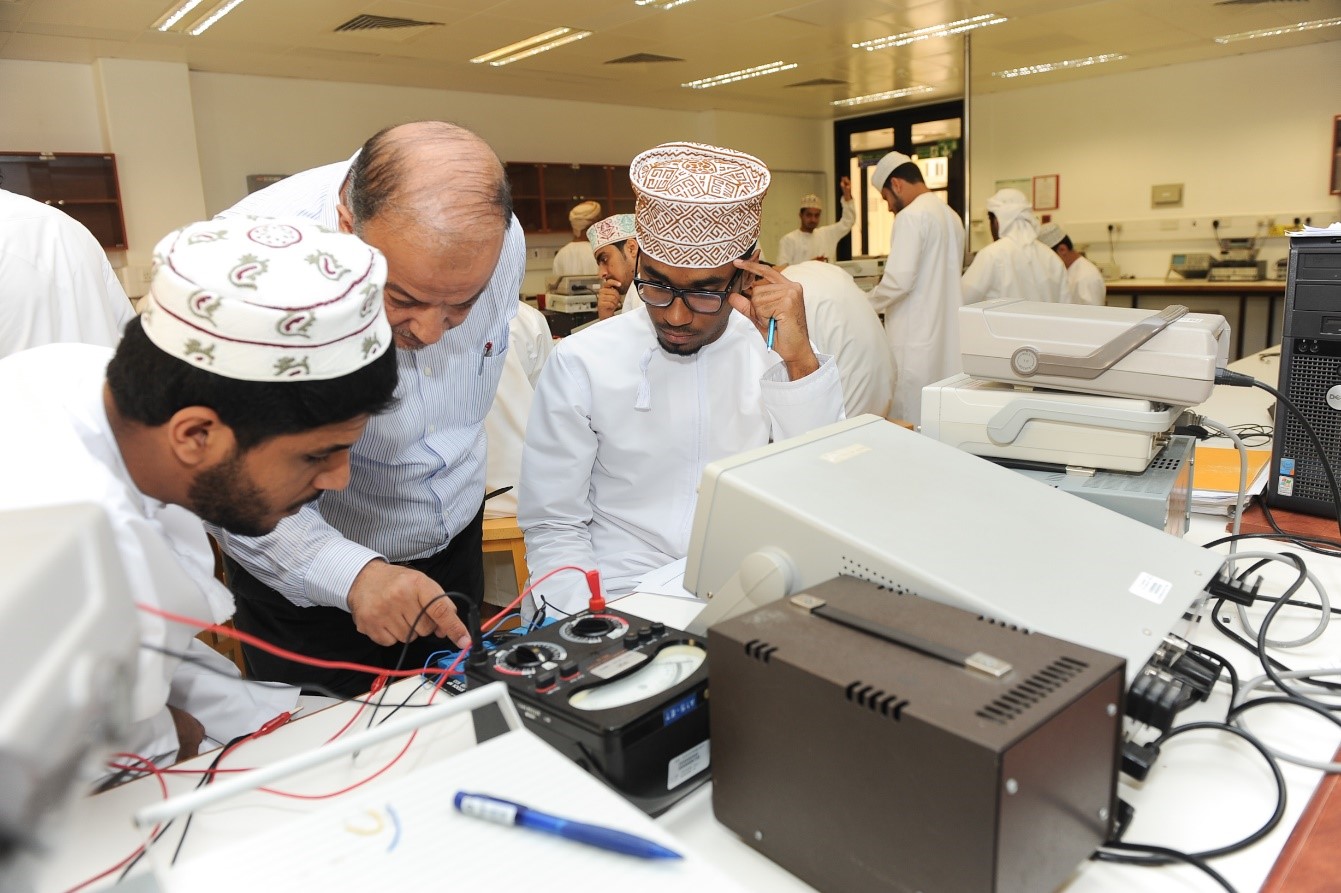The Electrical & Computer Engineering (B.Eng.) program, offered by the Department of Electrical and Computer Engineering, is accredited by the Engineering Accreditation Commission (EAC) of ABET (https://www.abet.org), under the commission's General Criteria and Program Criteria for Electrical, Computer, Communication, Telecommunication(s), and Similarly Named Engineering Programs. Also, a mechatronics program is jointly offered by the ECE and MIE Departments. In the ECE Department, we are motivated to achieve our vision of being an outstanding educational and research department in the college and in the region. The College of Engineering is the top Engineering College in Oman and offers strong undergraduate programs including Electrical and Computer Engineering, provide services, carry out basic and applied research and provide an environment, which will enable students and faculty members to contribute to the advancement of knowledge and innovative practice of engineering. The ECE Department has maintained to be the largest department in the College of Engineering since 1986. The Department continues to teach courses and conduct research in the fields of Embedded Computing and Networks (ECN), Telecommunications and Wireless Systems (TWS), Electronic Instrumentations and Control (EIC), and Power Systems and Energy (PSE). A new specialization track in the area of Biomedical Signals and Medical Devices is recently approved by the University and is now going through under-structural process. In addition to its undergraduate program, the ECE Department was the first to start the Master’s program in 1998. Further, a PhD program was launched in 2009.
Students are accepted in the ECE program from the intakes of the College of Engineering after they become eligible for specialization based on the College regulations. They must complete 25 credits before allocation of specialization (ECE, PCE, MIE, CAE, and MCTE) of which 12 credits must be from College of Engineering requirements. Criteria for distribution into specialization (ECE, PCE, MIE, CAE, and MCTE) depends on students’ choice, availability of seats in the specialization and his cumulative GPA. The total number of credits required by a student to graduate in ECE is a minimum of 136 credits. Our students get the degree of B.Eng. in Electrical and Computer Engineering as major and with any one sub-specialization (ECN, TWS, PSE or EIC).
B.Eng Degree Requirements
|
Requirements
|
No. of Credits
|
|
University Requirements
|
06
|
|
University Electives
|
06
|
|
College Requirements
|
32
|
|
College Electives
|
03
|
|
Department Requirements
|
56
|
|
Specialization Requirements
|
24
|
|
Specialization Electives
|
09
|
|
TOTAL
|
136
|

Industrial Training Courses:
Two mandatory Industrial Training courses are also part of the College requirement. In Training I, students get a 2-week in-house training in their third year, during the semester break between the fall and spring semesters (In the month of January). In the ECE Department, this training is in the form of laboratory projects that are conducted in the Electrical engineering laboratories. Training II is planned in the summer after the students complete their fourth year. For a period of 8 weeks, the students receive training from a private company or government ministry related to their specialization arranged SQU. A number of students receive their summer training abroad through collaboration agreements with international parties or through International Association for the Exchange of Students for Technical Experience (IAESTE). The student, supervised by the training organization, has to submit a report to his/her program at the end of the training period. The industrial training program is coordinated by the Assistant Dean for Industrial Training and Community Services.